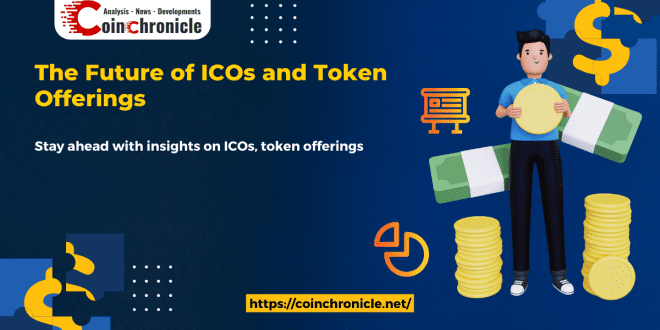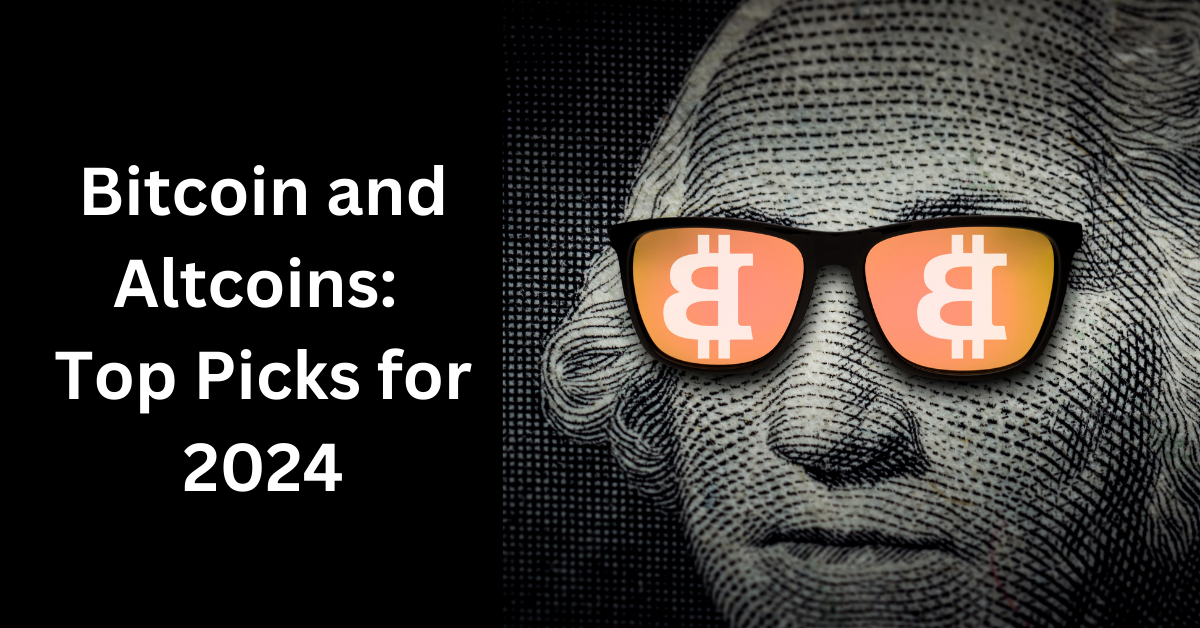Stay ahead with insights on ICOs, token offerings, regulatory changes & fundraising models. Learn about evolving tokenomics in the ever-changing landscape.
In recent years, Initial Coin Offerings (ICOs) and token offerings have revolutionized the way businesses raise capital. These innovative fundraising models have gained widespread attention and sparked a new wave of investment opportunities.
However, as the landscape of ICOs and token offerings continues to evolve, it is crucial for investors and entrepreneurs to stay informed about the latest developments and regulatory changes.
In this blog post, we will delve into the future of ICOs and token offerings, exploring the fundamental concepts of ICOs, recent developments in token offerings, the regulatory landscape, new fundraising models beyond ICOs, and the impact of evolving tokenomics. By understanding these key elements, readers will gain valuable insights into the changing dynamics of fundraising in the digital age. Join us as we navigate through the intricacies of these evolving fundraising models and uncover what the future holds for ICOs and token offerings.
Understanding ICOs: A Primer
Initial Coin Offerings, or ICOs, have emerged as a popular method for blockchain-based startups to raise funds. In simple terms, an ICO is a form of crowdfunding that uses cryptocurrency as a means of investment. It allows startups to bypass traditional venture capital routes and reach a global pool of investors.
One of the key characteristics of ICOs is the issuance of digital tokens, which are often based on the Ethereum blockchain using smart contracts. These tokens represent a stake in the project and may confer certain rights or privileges to the holders. Investors in an ICO typically purchase these tokens using existing cryptocurrencies such as Bitcoin or Ethereum.
It’s important to note that ICOs are not without controversy. The lack of regulation and oversight in the ICO space has led to numerous cases of fraud and scams, making it a high-risk investment. Additionally, the dynamic and rapidly evolving nature of ICOs means that potential investors need to conduct thorough due diligence before participating in any offering.
Despite the risks, ICOs have democratized investment and provided an avenue for innovative projects to secure funding. They have also sparked discussions around the potential for disrupting traditional finance and venture capital models. As the regulatory landscape continues to evolve, understanding the basics of ICOs is essential for anyone interested in the blockchain space.
Recent Developments in Token Offerings
The world of token offerings has been rapidly evolving in recent times, with several new developments taking place in the industry. One of the most significant changes has been the emergence of Security Token Offerings (STOs), which offer a regulated alternative to traditional Initial Coin Offerings (ICOs).
Another major development is the increasing popularity of Initial Exchange Offerings (IEOs), which are token sales conducted on cryptocurrency exchanges. These offerings have gained traction due to the added level of security and trust that comes with being hosted on an exchange platform.
Furthermore, there has been a shift towards more compliant and legally sound token offerings, with many projects focusing on adhering to regulatory requirements. This has led to a growing emphasis on due diligence and transparency, as well as the development of comprehensive legal frameworks for token sales.
Additionally, the concept of tokenization has expanded beyond the realm of cryptocurrencies, with assets such as real estate, artwork, and commodities being represented as digital tokens. This trend has opened up new avenues for investment and trading, further diversifying the token offerings landscape.
Regulatory Landscape: Adapting to Change
As cryptocurrency and blockchain technology continue to gain widespread attention, governments and regulatory bodies around the world are grappling with the challenges of adapting their existing frameworks to the rapidly evolving token economy. The pace of innovation in the crypto space has outstripped the ability of regulators to keep up, leading to a landscape of uncertainty and inconsistency in regulatory approaches.
One of the key challenges for regulators is to strike a balance between protecting investors and consumers, while also fostering innovation and allowing the crypto industry to flourish. Many jurisdictions have been slow to provide clear guidance on the regulatory treatment of tokens, resulting in a patchwork of regulations that vary widely from country to country.
This uncertainty has created significant barriers for token issuers and crypto startups, who often find themselves navigating a complex maze of compliance requirements. Additionally, investors are faced with the challenge of understanding the regulatory implications of token investments in different jurisdictions, further complicating the token offerings landscape.
However, despite these challenges, there are signs of progress as regulators begin to adapt their approaches to the token economy. Some jurisdictions have taken steps to provide clear guidance on the treatment of tokens, while others are exploring innovative regulatory frameworks that seek to strike a balance between consumer protection and innovation. As the regulatory landscape continues to evolve, it is essential for stakeholders in the crypto industry to stay informed and engage with regulators to help shape the future of regulation in this rapidly growing sector.
New Fundraising Models: Beyond ICOs
The concept of fundraising has evolved significantly in the digital age, particularly with the emergence of Initial Coin Offerings (ICOs). While ICOs have played a crucial role in enabling startups to raise capital in a decentralized manner, new fundraising models have begun to emerge, offering innovative ways for businesses to secure funding beyond the traditional ICO framework.
One such model that has gained traction in recent years is the Security Token Offering (STO). Unlike ICOs, which typically offer utility tokens, STOs involve the issuance of digital tokens that represent ownership of real assets, such as equity or debt in a company. This provides investors with more tangible value and legal rights, making STOs a more regulated and secure alternative to ICOs.
Another innovative fundraising model that has garnered attention is the Initial Exchange Offering (IEO). With IEOs, fundraising is conducted through a cryptocurrency exchange, which acts as a trusted intermediary between the project team and potential investors. This can help streamline the fundraising process and enhance investor confidence, as exchanges often conduct due diligence on projects before listing their tokens.
Furthermore, we are witnessing the rise of Decentralized Finance (DeFi) as a new fundraising avenue that goes beyond ICOs. DeFi platforms enable individuals to access financial services, such as lending and borrowing, without the need for traditional intermediaries. This open and permissionless nature of DeFi has the potential to revolutionize fundraising by providing a more inclusive and accessible means of capital formation.
The Impact of Evolving Tokenomics
Evolving tokenomics is changing the way we think about traditional investment models. With the rise of blockchain technology, tokenomics has become an essential aspect of the crypto market. Unlike traditional financial assets, such as stocks or bonds, tokens provide a new way to invest in the digital age. As the token economy continues to evolve, we are seeing the impact on fundraising models, regulatory landscapes, and the overall financial ecosystem.
One of the key impacts of evolving tokenomics is the shift in fundraising models. Traditional methods of fundraising, such as Initial Public Offerings (IPOs), are being challenged by Initial Coin Offerings (ICOs) and other token offerings. This has allowed companies to access capital more easily and has democratized the investment process, allowing small investors to participate in early-stage fundraising.
Another significant impact of evolving tokenomics is the changing regulatory landscape. Governments and regulatory bodies are struggling to keep up with the rapidly evolving crypto market. There is a need for regulatory frameworks to adapt to these new financial instruments, while also protecting investors from fraud and market manipulation.
Overall, the impact of evolving tokenomics is transforming the way we think about investing and raising capital. It is important for investors, entrepreneurs, and regulators to understand the implications of these changes and to adapt to the new paradigm of crypto finance.
 Crypto Journal: Analyses, News, and Developments – Coin Chronicle Platform Coin Chronicle is your go-to source in the dynamic world of cryptocurrencies.
Crypto Journal: Analyses, News, and Developments – Coin Chronicle Platform Coin Chronicle is your go-to source in the dynamic world of cryptocurrencies.



